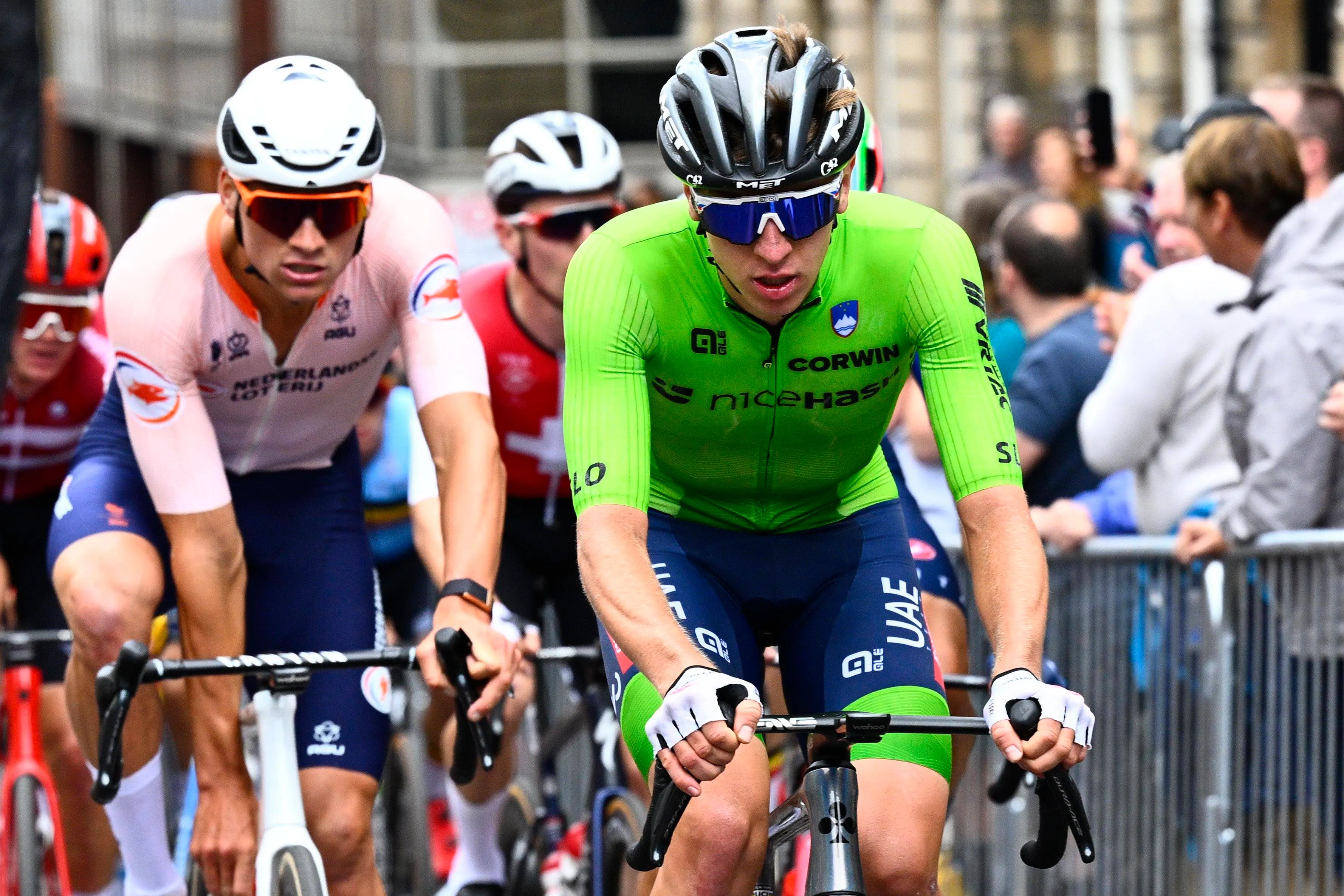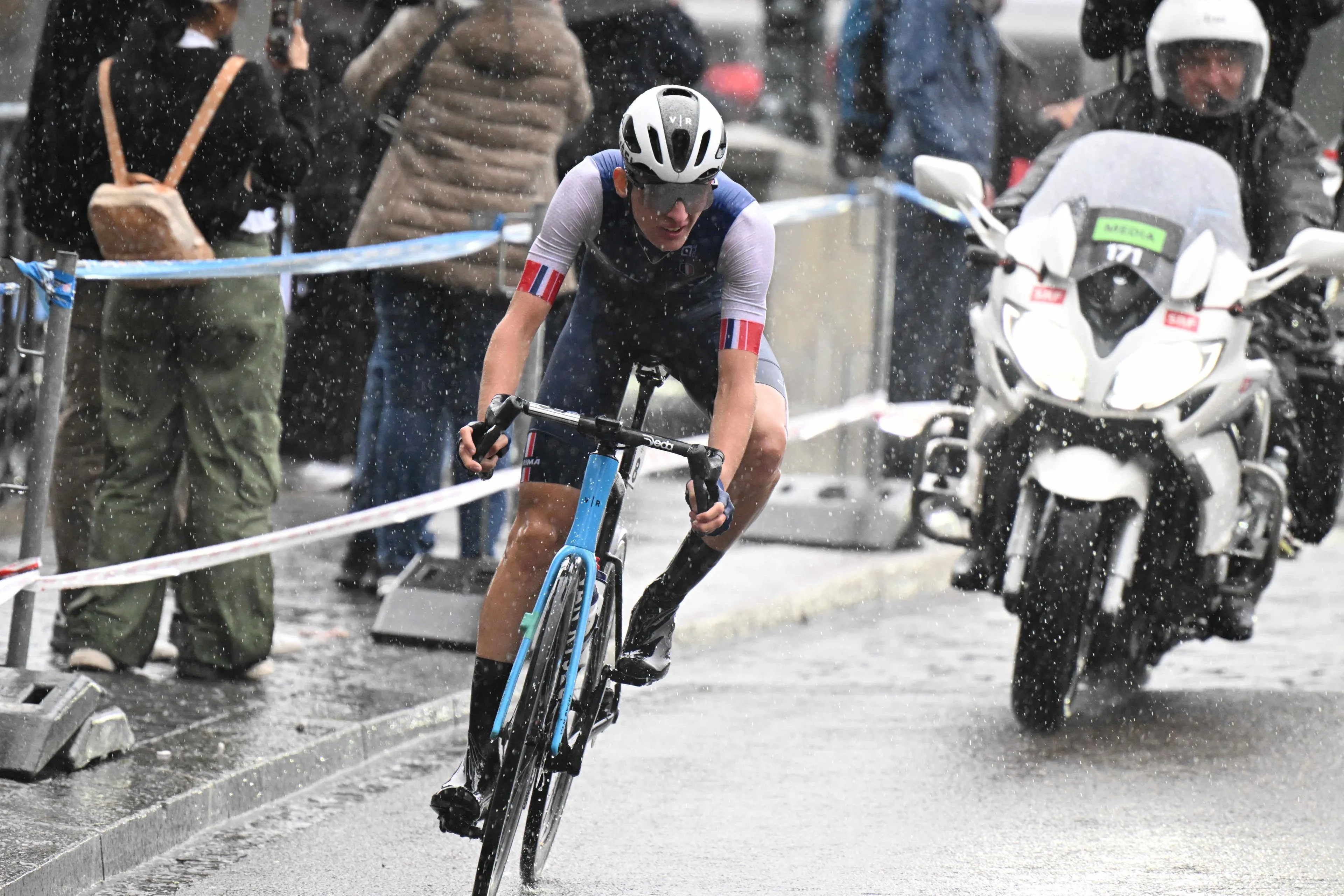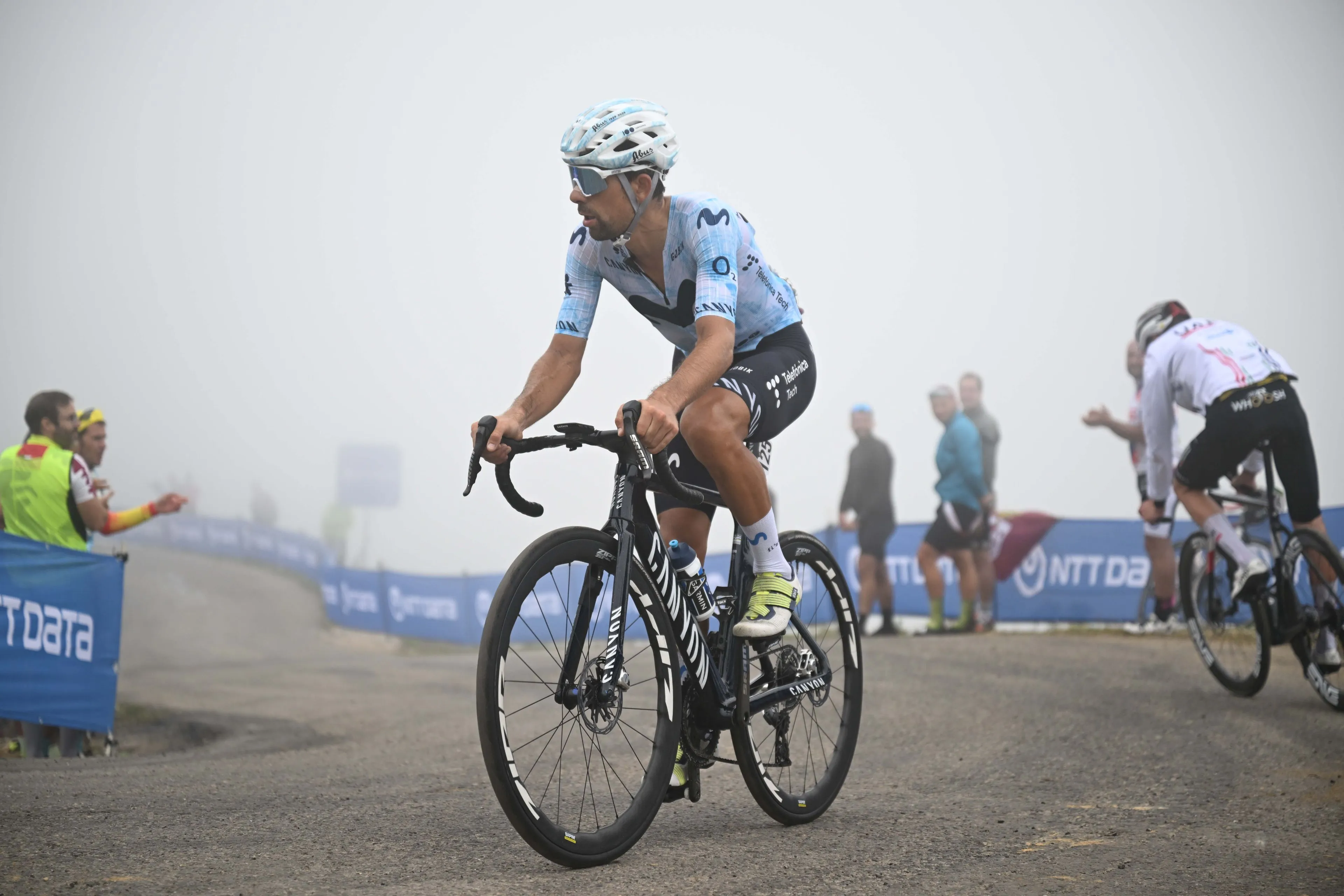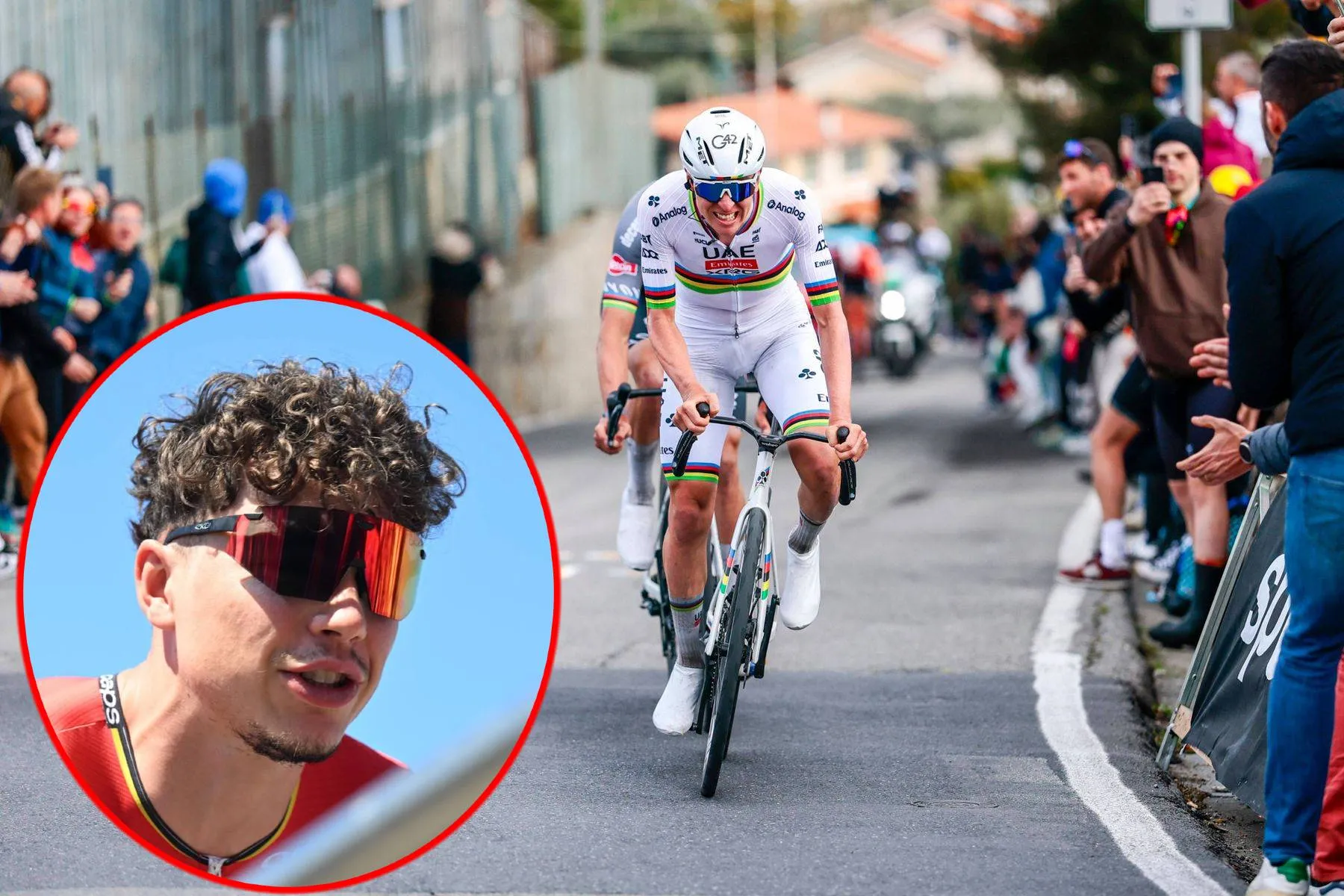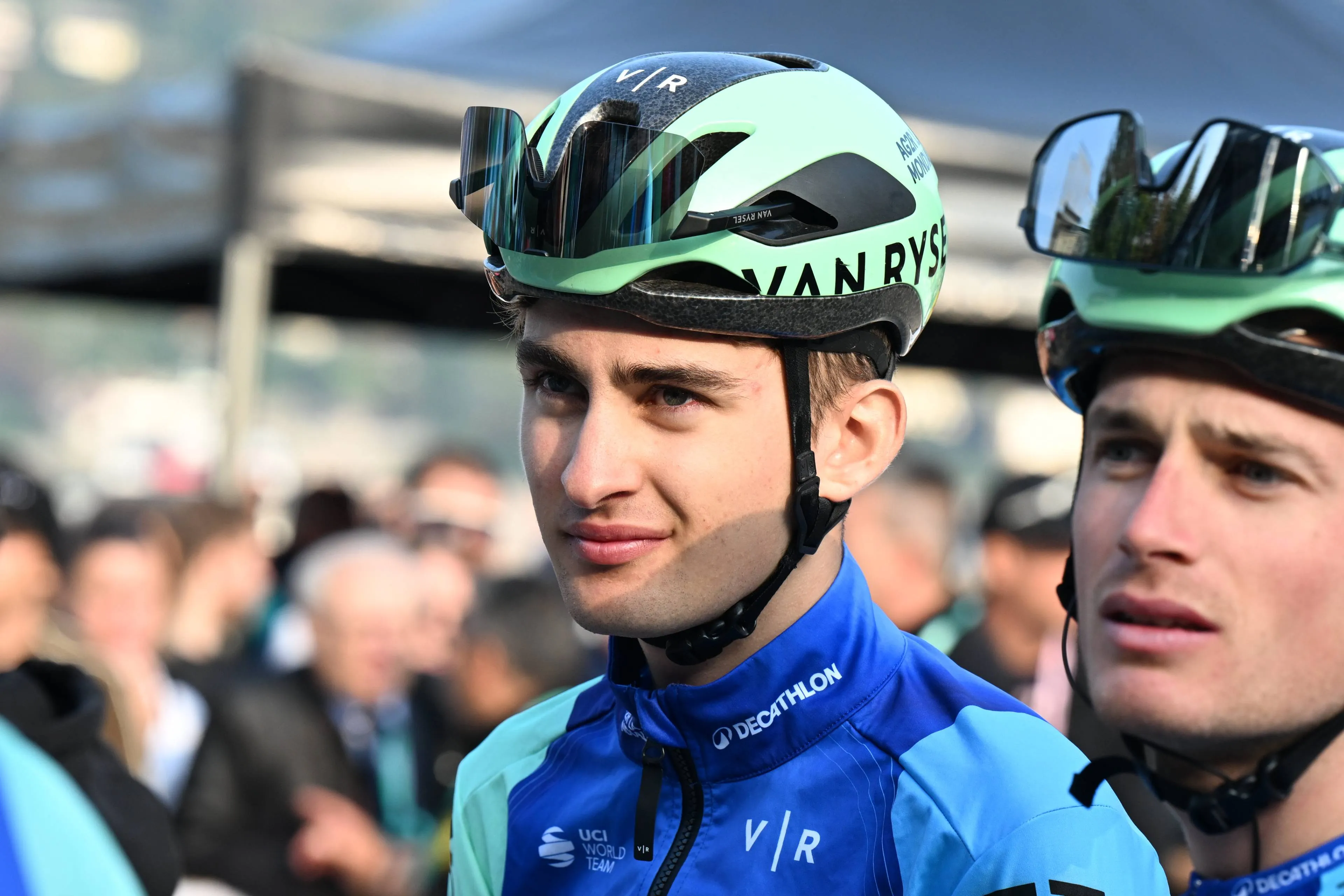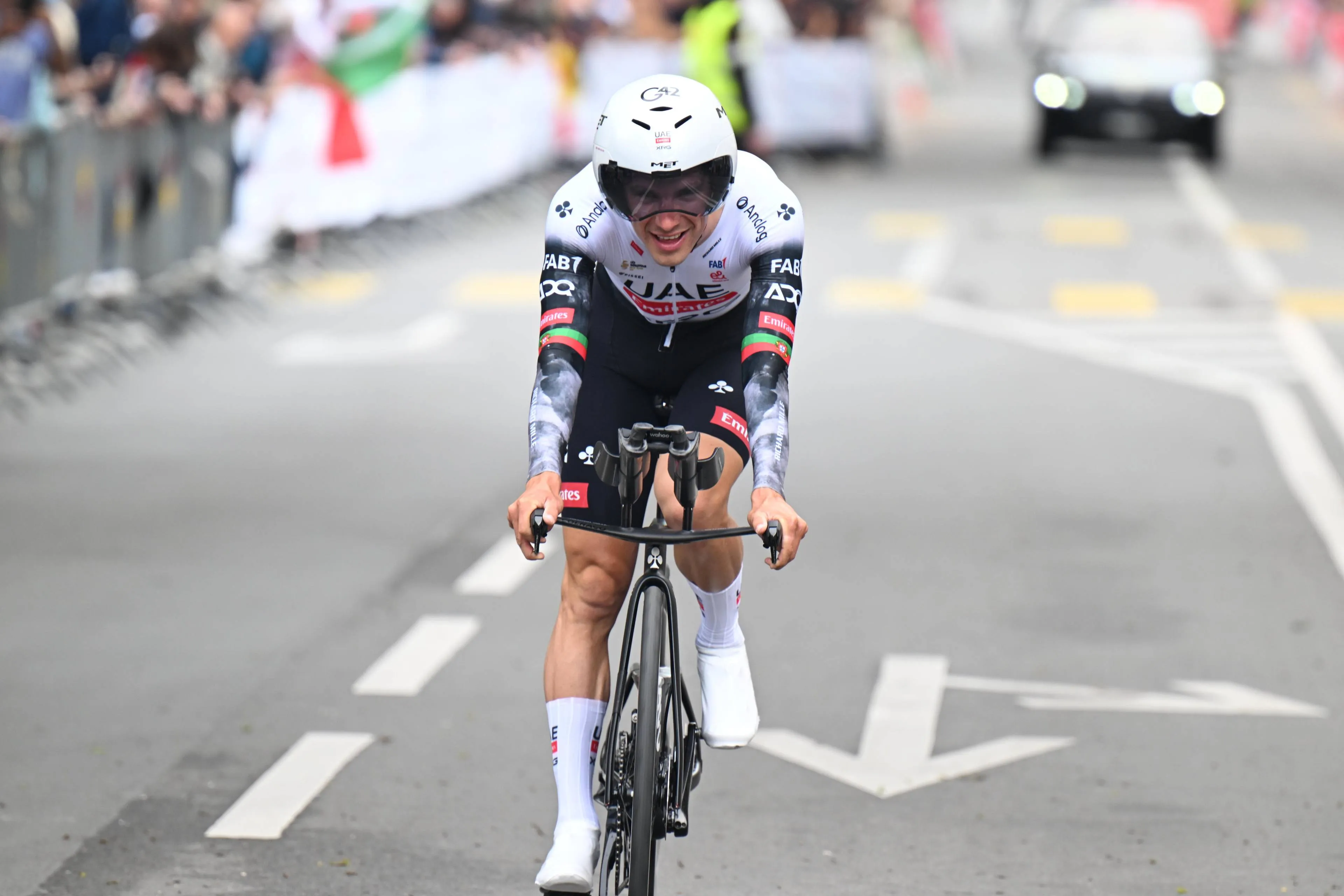Chris Froome proposes 'limiting the progression of technology in the sport to accommodate for the safety aspect' - "We won't be seeing guys coming to sprint on a 60 chainring anymore"
CyclingMonday, 06 January 2025 at 19:00

Safety in cycling is a problem, that is almost unanimously agreed at this point. What can or should be done then is something that many people will have varying opinions. In Chris Froome's opinion, one sure decision that should be in place is the restriction of chainring sizes as he sees the peloton reach absurd speeds in the downhills.
"We're seeing the sport going faster and faster and races being raced differently with more stress, more fighting for position and unfortunately we're seeing more serious crashes happening," Froome said in an interview with Gazzetta dello Sport.
"At some point, I think we're maybe going to have to even have the discussion about limiting the progression of technology in the sport to accommodate for the safety aspect. That could be something as simple as limiting the gears we're using for example."
Read also
There are many aspects in which safety is actively being discussed and improved, but understandably this is largely overshadowed by the disasters that strike the sport. Only last year, Andre Drege and Muriel Furrier have lost their lives whilst competing in UCI events. For Froome, the technological advances are leading to speeds that are higher than ever in the sport, which increases the danger for everyone in the peloton.
"That's not to say that everyone is going to be riding around on junior gears but maybe in a year or two we won't be seeing guys coming to sprint on a 60 chainring anymore, which is happening at some races," he warns. He believes there should be a red line implemented to prevent riders from having even larger chainrings that will continue to make the flat roads and descents mainly even quicker than what is currently taking place.
"The speeds needed to move a 60 chainring can be above 80Kph and you're still pedalling. Maybe we need to put a limit on them. I'm not saying junior gears but maybe 56 or 54 needs to be the limit, to keep the speeds down on the descents."
Read also
Froome also believes that there is a possibility that the continuous signing and focus on young riders is having as a consequence a peloton with more inexperienced riders, which leads to crashes more often. "We're seeing an average age becoming much younger in the professional peloton which means the level of experience is actually much less as well. Maybe guys with less experience are going faster and taking more risks, that could also be a factor."
"It's a bit of a crazy problem to have because, for so many years, we've been trying to figure out ways to go faster and faster every year. We've tried to get more aerodynamic, get more power through nutrition, through training, through coaching and actually, I think all of those things are starting to work now," he concluded.
Read also
claps 0visitors 0
Just in
Popular news
Latest comments
- Yes, the guy is no fluke. Even if he fails to improve over the next 15 years he’ll do damage. That young blood is going to keep the establishment working hard.Mistermaumau19-02-2026
- This excuse is harmless, just quaint and amusing. The excuse I really disliked was when he accused a mechanic of improperly adjusting his saddle, endangering the mechanic's job: blaming others for your own limitations is a serious matter.
 maria2024202419-02-2026
maria2024202419-02-2026 - ok so this is impressive - I trashed this guy all winter, get a pro win before the anointing. against a quality field. And Onley and Riccitello look good too. fun to see young blood.mij19-02-2026
- Minor flaws.... thats like suggesting Genghis Khan was a bit aggressive with other countriesslappers6619-02-2026
- Then you carry on if that's what makes you happyslappers6619-02-2026
- Fabio cannot catch a break.mij19-02-2026
- OK, today is the "air conditioner"... yesterday was a cramp... on saturday a bee will sting him in his tongue... his tongue will swell up and mustafa gets no oxygen. Because of his swollen tongue, Remco won't be able to give us a new excuse. Remco and the spanish rat Ayuso should be on the same team. They both have a ton of excuses and both of them are liars. Ad acta.Mou-Cro-HR19-02-2026
- Florian Lipowitz is secretly happy
 Rafionain-Glas19-02-2026
Rafionain-Glas19-02-2026 - The crucial thing to remember is that Remco was broken by the pace of Gall and Tiberi, not Del Toro's. Remco's excessive antics are because he doesn't want anyone to think that he's 'genuinely' struggling. You can always say 'he got cramps' because 'his preparation didn't go to plan', but the thing is that there is a limit to the number of excuses and exceptions that there can be. Eventually everyone just accepts that he's reached his ceiling on the climbs.
 Rafionain-Glas19-02-2026
Rafionain-Glas19-02-2026 - Bahraini suspicious..Santiago19-02-2026
Loading
1 Comments

